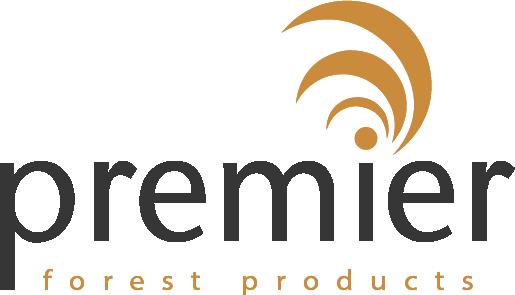PRODUCTS
SERVICES
NEWS


Introduction
This statement sets out Premier Forest Products Ltd. ‘s actions to understand all potential Modern slavery risks related to its business and to put in place steps that are aimed at ensuring there is no slavery or human trafficking in its own business and its supply chains. This statement relates to actions and activities during the financial year 1st May 2023 to 30th April 2024.
As part of Timber Trading, the organisation recognises that it has a responsibility to take a robust approach to slavery and human trafficking. The organisation is absolutely committed to preventing slavery and human trafficking in its corporate activities, and to ensuring that its supply chains are free from slavery and human trafficking.
Organisational structure and supply chains
This statement covers the activities of Premier Forest Products Ltd: The organisation operates as a Timber Trading Company, incorporating 13 sites in the UK. Principal activities include import, production, processing & distribution of timber products. These products are sourced from both within the UK and from Overseas.
The organisation currently operates directly in the following countries: The United Kingdom
The following is the process by which the company assesses whether particular activities or countries are high risk in relation to slavery or human trafficking: We use the CPI and other public information sources as a guide to areas where slavery or human trafficking could be more prevalent. We also conduct a full due diligence process on all supply chains.
The following activities are at high risk of slavery or human trafficking: Logging Operations & Manufacturing processes within certain countries.
Responsibility for the organisation’s anti-slavery initiatives is as follows:
Policies
We have a written contract between ourselves and our suppliers we send a copy of our full policy documentation to our suppliers requiring them to sign and return this contract which confirms their receipt, understanding and compliance with the Modern Slavery Act 2015.
Investigations/due diligence
We outsource part of our Due Diligence process through Track Record Global to ensure we have an independent third party involved in this process. We also seek wherever possible materials certified under internationally recognised Forest Certification and Chain of Custody schemes which have robust & extensive due diligence processes to ensure slavery and human trafficking are not part of the production process and adhere to the ILO Conventions. These organisations also engage with Labour Unions, Social Unions and NGOs.
We ensure awareness of Legislation; our Policies and these requirements are communicated throughout our supply chains and directly with our own staff.
The organisation operates the following policies that describe its approach to the Identification of modern slavery risks and steps to be taken to prevent slavery and human trafficking in its operations:
Whistleblowing policy
The organisation encourages all its workers, customers and other business partners to report any concerns related to the direct activities, or the supply chains of, the
organisation. This includes any circumstances that may give rise to an enhanced risk of slavery or human trafficking. The organisation’s whistleblowing procedure is designed to make it easy for workers to make disclosures, without fear of retaliation the procedure is set out within the Employee Handbook. Customers or others who have concerns can communicate these to the company expecting any information passed to be treated in confidence with the necessary sensitivity concerning the source.
Employee code of conduct
The organisation’s code makes clear to employees the actions and behaviour expected of them when representing the organisation. The organisation strives to maintain the highest standards of employee conduct and ethical behaviour when operating abroad and managing its supply chain.
Procurement code of conduct
The organisation is committed to ensuring that its suppliers adhere to the highest standards of ethics. Suppliers are required to demonstrate that they provide safe working conditions where necessary, treat workers with dignity and respect, and act ethically and within the law in their use of labour. The organisation works with suppliers to ensure that they meet the standards of the code and improve their worker’s working conditions. However, serious violations of the organisation’s supplier code of conduct will lead to the termination of the business relationship. We have a written contract between ourselves and our suppliers requiring that they sign and return this contract which confirms their receipt, understanding and compliance with the Modern Slavery Act 2015.
Agency workers policy
The organisation uses only specified, reputable employment agencies to source labour and always verifies the practices of any new agency before accepting workers from that agency.
Due diligence
The organisation undertakes extensive due diligence when considering taking on new suppliers and regularly reviews its existing suppliers. The organisation’s due diligence and reviews include; mapping the supply chain broadly to assess particular product or geographical risks of modern slavery and human trafficking; reviewing on a regular basis all aspects of the supply chain based on the supply chain mapping, conducting supplier audits or assessments through the organisation’s own staff or third party auditors, which have a greater degree of focus on slavery and human trafficking.
Where general risks are identified; creating an annual risk profile för each supplier; then taking steps to improve substandard suppliers’ practices, including providing advice to suppliers through third party auditor and requiring them to implement action plans as could be necessary. Invoking sanctions against suppliers that fail to improve their performance in line with an action plan or seriously violate our supplier code of conduct, including the termination of the business relationship.
Training
The organisation requires all staff, including any staff working overseas /supply chain Managers & 1–1 R professionals within the organisation to complete training on modern slavery as a module within the organisation’s wider human rights/ethics & ethical trade training programme.
The organisation requires all staff/staff working in supply chain management / procurement & HR professionals to complete an online training course provided by CPD Accredited “HSQE” this is repeated annually. The organisation’s modern slavery training covers the way our business’s purchasing practices can influence supply chain conditions and should therefore be designed to prevent purchases at unrealistically low prices, the use of labour engaged on unrealistically low wages or wages below a country’s national minimum wage or the provision of products by an unrealistic deadline.
How to assess the risk of slavery and human trafficking in relation to various aspects of the business, including resources and support available, how to identify the signs of slavery and human trafficking.
What initial steps should be taken if slavery or human trafficking is suspected; how to escalate potential slavery or human trafficking issues to the relevant parties within the organisation what messages, business incentives or guidance can be given to suppliers and other business partners and contractors to implement anti-slavery policies; and the steps the organisation should take if suppliers or contractors do not implement anti-slavery policies in high-risk scenarios, including their removal from the organisation’s supply chains.
Awareness‐raising programme
As well as training staff, the organisation continues to raise awareness of modern slavery issues by circulating emails to staff. The emails explain to staff: The basic principles of the Modern Slavery Act 2015; What employees can do to flag up potential slavery or human trafficking issues to the relevant parties within the organisation; and what external help is available, for example through the Modern Slavery Helpline.
Board approval
This statement was approved June 2025 by the organisation’s board of directors, who review and update it annually.
Download the full PDF versions: